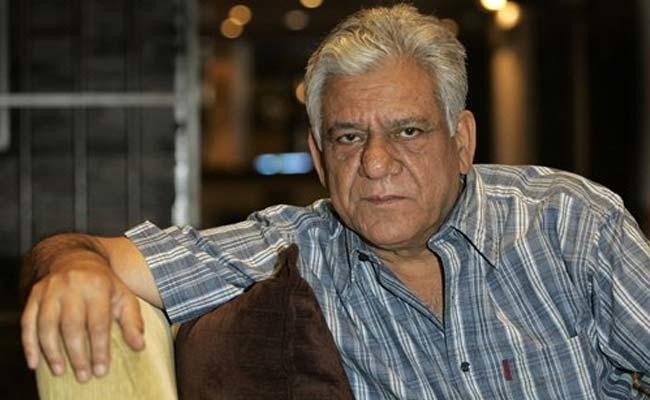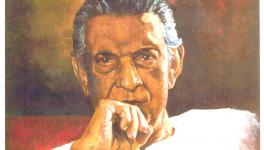Om Puri: Indian Cinema Loses a Rational Voice

Indian Cinema has witnessed a great loss with the death of one of its finest actors. Om Puri was known for his versatility, and the acute dedication with which he invested himself in preparation for every role. His innate talent was demonstrated in his early days, at the National School of Drama (NSD). Veteran actor Naseerudin Shah, and a contemporary of Om Puri at NSD, recalls in his autobiography And Then One Day, the sheer talent and sincerity with which Puri mastered the lead role for a Kabuki play in Hindi, Ibaragi. This also established his potential as a young actor.
Om Puri straddled various paths in the world of cinema. He acted in a range of films, varying from the comic to the tragic. He was an important part of the parallel cinema movement in the 1980s, and also acted in numerous Bollywood films. One could perhaps say that he set the trend for Indian actors to “cross over” to cinema overseas. Some of his well-known films are Aakrosh (1980), Ardha Satya (1983), Jaane Bhi Do Yaaron (1983), Mirch Masala (1987), and City of Joy (1992), to name a few.
He was a defining presence in the parallel cinema movement in India, which depicted the times and society in the realistic mode. He exemplified the plight of the common man. There is also a dignity with which he depicted the complexity of human beings in his films; Aakrosh is one such film. Om Puri plays the lead figure in this film, a tribal who is accused of killing his wife. Interestingly, he hardly has any dialogues in the film, yet he gives a powerful performance. The film provides a new avenue to our perception of acting, and our conventional understanding of dialogue as integral to action. This was something new and fresh in a cinema known for its verbosity and sentimentality; his performance in Aakrosh provides a deep relevance today. Puri acted in numerous films that addressed caste and caste oppression, such as Ketan Mehta’s Bhavni Bhavai (1980) and the telefilm series Sadgati (1981). His contribution to such cinema is of vital importance, and needs to be reiterated in an age where Indian cinema seldom confronts the issue of caste in Indian society.
Rolland Joffe gave Om Puri his first “big break” in Hollywood in his film City of Joy. He was cast one of the main roles in the film as a rickshaw puller. Puri was invested and consumed in portraying this role to the extent that he was actually mistaken for a rickshaw puller. Needless to say, he delivered a phenomenal performance.
Apart from the numerous roles that Om Puri performed, he also took upon the role of a thinking citizen outside of the world of cinema and theatre. He was vocal about his stance on India-Pakistan relations, and the controversy about Pakistani artists working in India, amidst the ensuing cacophony of hyper-nationalism. He also extended solidarity to the campaign against Kudankulam Nuclear Project. His rational and secular voice, which is of great value today, will be missed.
Get the latest reports & analysis with people's perspective on Protests, movements & deep analytical videos, discussions of the current affairs in your Telegram app. Subscribe to NewsClick's Telegram channel & get Real-Time updates on stories, as they get published on our website.

















